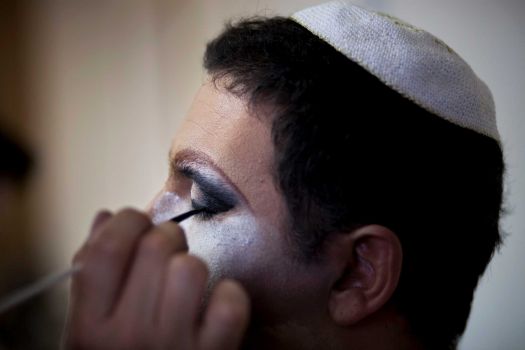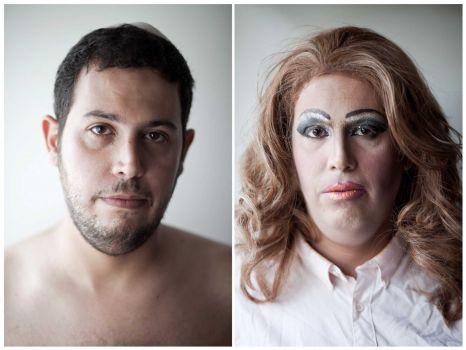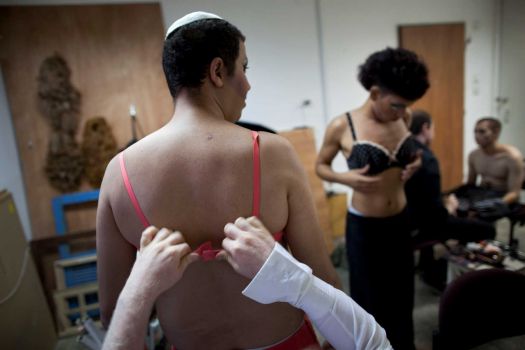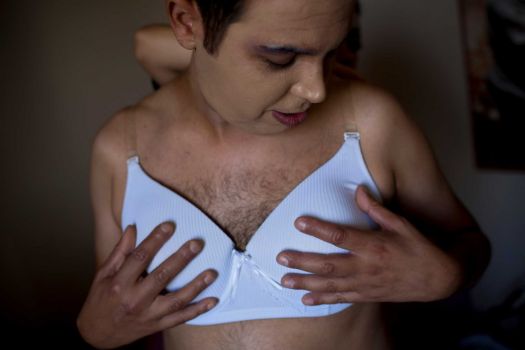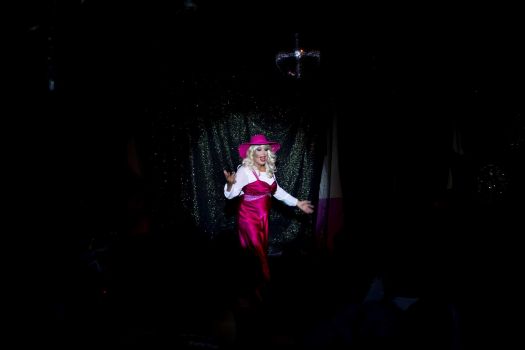Daniel Estrin
AP
August 1, 2013
Just shy of midnight, Shahar Hadar trades his knitted white yarmulke for a wavy blond wig and a pink velvet dress.
Cheers greet him in a packed gay bar as he starts to swivel to a Hebrew pop song, his shiny red lips mouthing lyrics that mean more to him than the audience knows: “With God’s help you’ll have the strength / To overcome and give your all.”
It has been a long and agonizing metamorphosis for Hadar, 34, from being a conflicted Orthodox Jew to a proud religious gay man — and drag queen. Most Orthodox Jewish gay men, like those in other conservative religious communities around the world, are compelled to make a devil’s bargain: marry a woman to remain in their tight-knit religious community, or abandon their family, community and religion to live openly gay lives.
But while Orthodox Judaism generally condemns homosexuality, there is a growing group of devout gay Jews in Israel unwilling to abandon their faith and demanding a place in the religious community.
“As much as I fled it, the heavens made it clear to me that that’s who I am,” Hadar said. He is marching Thursday — out of costume — in Jerusalem’s annual gay pride parade.
Hadar, a telemarketer by day, has taken the gay Orthodox struggle from the synagogue to the stage, beginning to perform as one of Israel’s few religious drag queens. His drag persona is that of a rebbetzin, a female rabbinic advisor — a wholesome guise that stands out among the sarcastic and raunchy cast of characters on Israel’s drag queen circuit.
“She blesses, she loves everyone,” said Hadar of his alter-ego, Rebbetzin Malka Falsche. The stage name is a playful take on a Hebrew word meaning “queen” and Hebrew slang for “fake.” Her philosophy, and Hadar’s, draws from the teachings of the Breslov Hasidic stream of ultra-Orthodox Judaism: embrace life’s vicissitudes with joy.
“Usually drag queens are gruff. I decided that I wanted to be happy, entertain people, perform mitzvoth,” or religious deeds, he said.
